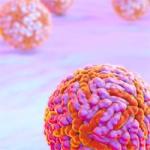
Research Topics
Our laboratory studies how noncoding RNAs function, how cells recognize and degrade defective RNAs, and how failure to degrade these RNAs affects cell function and contributes to human disease. Most cellular RNA does not encode proteins, and truncated, misfolded and aberrant RNAs can accumulate due to mutations, transcriptional errors and processing mistakes. Some forms of environmental stress, such as exposure to oxidants and ultraviolet light, result in RNA damage, yet little is known of how damaged RNAs are recognized and handled.
One pathway that we study involves noncoding RNA-protein complexes known as Ro60 ribonucleoproteins (RNPs). These RNPs are clinically important targets of the immune system in patients suffering from two rheumatic diseases, systemic lupus erythematosus and Sjögren’s syndrome. The major protein component, the ring-shaped Ro60 autoantigen, is present in most animal cells and ~5% of bacteria. In all studied organisms, Ro60 binds noncoding RNAs called Y RNAs. By studying Ro60 in bacteria, we discovered that this protein is tethered by Y RNA to a ring-shaped nuclease, forming a double-ringed RNP machine specialized for structured RNA degradation. We showed that Ro60 contributes to survival of both mammalian cells and bacteria in the presence of stresses, such as ultraviolet light, that damage nucleic acids. We also provided evidence that bacterial Ro60 RNPs may act through molecular mimicry to trigger autoantibody formation in susceptible patients. Our current goals are to uncover additional roles for Ro60 and Y RNAs in both mammalian cells and bacteria. We are also studying ways in which this and other RNA surveillance pathways contribute to normal cell physiology and prevent diseases such as cancer.
Relevance to cancer
While much is known as to how DNA damage contributes to carcinogenesis, less is known about the effects of RNA damage. Many environmental agents that damage DNA also affect RNA integrity and alter RNA pools. For example, UV irradiation causes RNA-protein crosslinks and increases transcription of retrotransposons. Many common chemotherapeutics, such as mitomycin C and bleomycin, also damage RNA. By uncovering novel mechanisms by which cells deal with the effects of RNA damage, our work could advance understanding of the paths that lead to cancer and increase knowledge as to how chemotherapeutic agents function.
Postdoctoral fellowships
Our group has an opening for a postdoctoral fellow. Please send your C.V., a statement of research interests and the names of three references to sandra.wolin@nih.gov
Biography
Dr. Wolin earned her A.B. in Biochemical Sciences from Princeton University, her M.D. from the Yale School of Medicine and her Ph.D. from the Department of Molecular Biophysics and Biochemistry at Yale University. After postdoctoral training at the University of California, San Francisco, she returned to the Yale School of Medicine as an Assistant Professor and rose to the rank of Professor in the Departments of Cell Biology and Molecular Biophysics and Biochemistry. From 2014-2017, she served as Director of the Yale Center for RNA Science and Medicine. She joined the NCI in 2017 as the inaugural Chief of the newly formed RNA Biology Laboratory and Head of the NCI RNA Biology Initiative. She is an elected Fellow of the American Association for the Advancement of Science (2013), the American Academy of Microbiology (2014), and the American Academy of Arts and Sciences (2023). She received the Sandra K. Masur Senior Leadership Award from the American Society for Cell Biology in 2021. She is currently serving as President of the RNA Society.
Selected Publications
- Hughes KJ, Chen X, Burroughs AM, Aravind L, Wolin SL. An RNA Repair Operon Regulated by Damaged tRNAs. Cell Rep. 2020;33(12):108527.
- Leng Y, Sim S, Magidson V, Wolin SL. Noncoding Y RNAs regulate the levels, subcellular distribution and protein interactions of their Ro60 autoantigen partner. Nucleic Acids Res. 2020;48(12):6919-6930.
- Sim S, Hughes K, Chen X, Wolin SL. The Bacterial Ro60 Protein and Its Noncoding Y RNA Regulators. Annu Rev Microbiol. 2020;74:387-407.
- Belair C, Sim S, Kim KY, Tanaka Y, Park IH, and., Wolin SL. The RNA exosome nuclease complex regulates human embryonic stem cell differentiation. J Cell Biol. 2019;218(8):2564-2582.
- Greiling TM, Dehner C, Chen X, Hughes K, Iñiguez AJ, Boccitto M, Ruiz DZ, Renfroe SC, Vieira SM, Ruff WE, Sim S, Kriegel C, Glanternik J, Chen X, Girardi M, Degnan P, Costenbader KH, Goodman AL, Wolin SL, Kriegel MA. Commensal orthologs of the human autoantigen Ro60 as triggers of autoimmunity in lupus. Sci Transl Med. 2018;10(434).
Related Scientific Focus Areas



Microbiology and Infectious Diseases
View additional Principal Investigators in Microbiology and Infectious Diseases

Molecular Biology and Biochemistry
View additional Principal Investigators in Molecular Biology and Biochemistry

This page was last updated on Tuesday, April 16, 2024